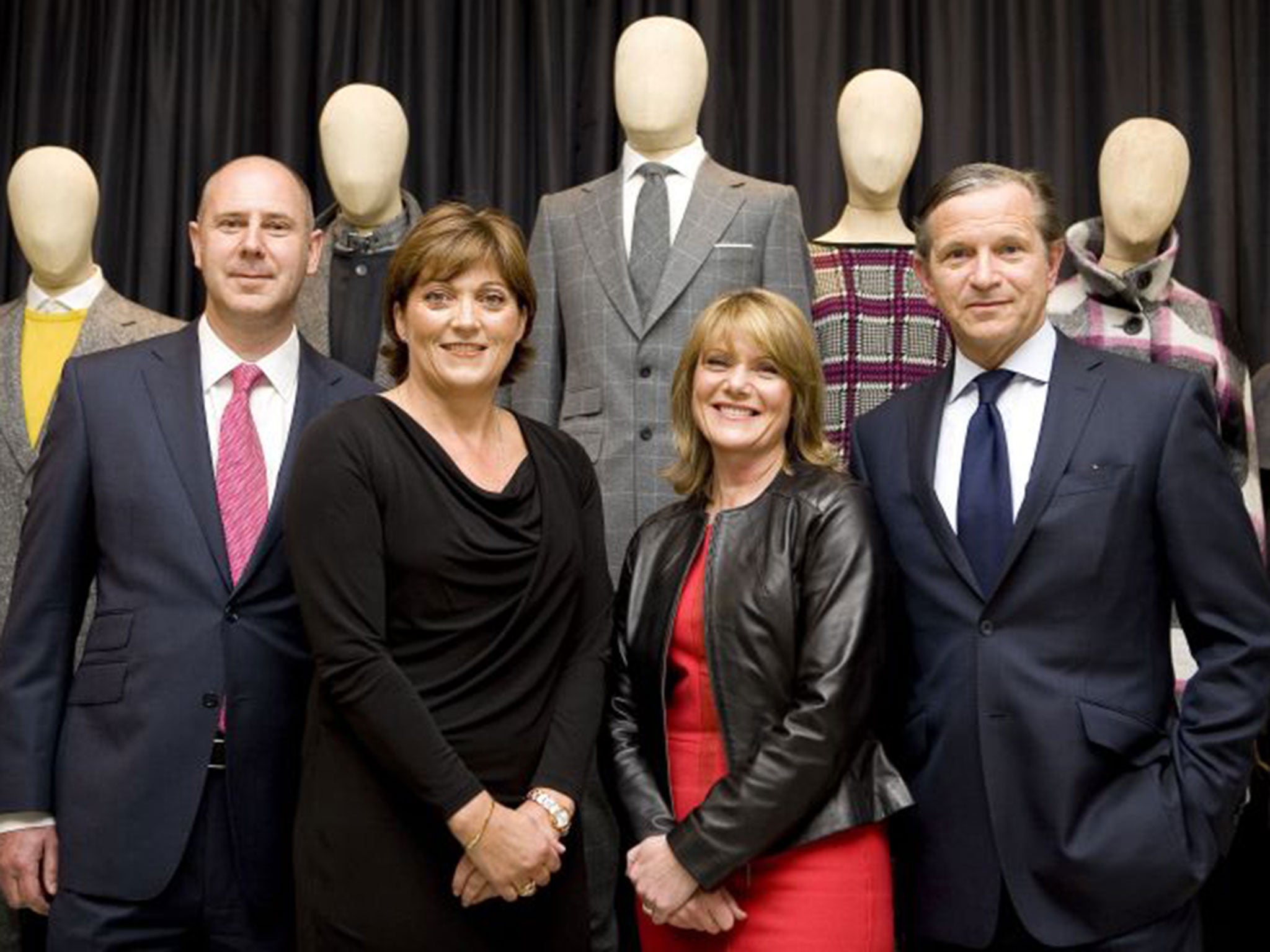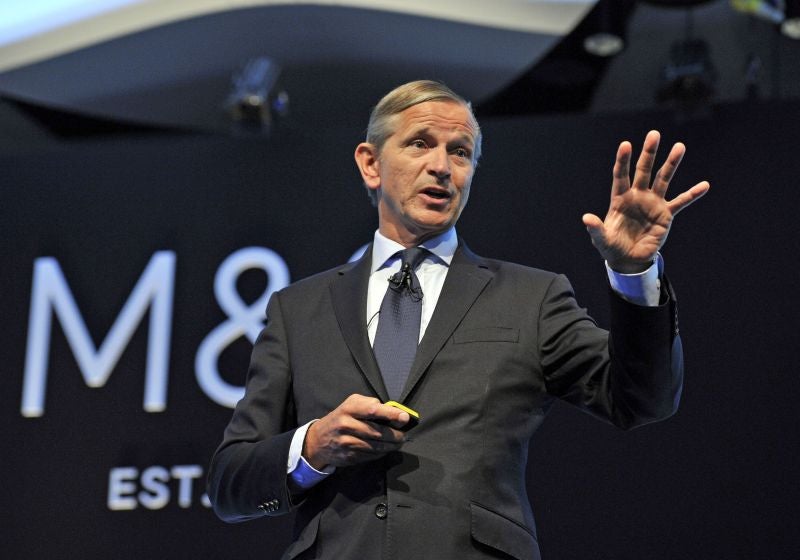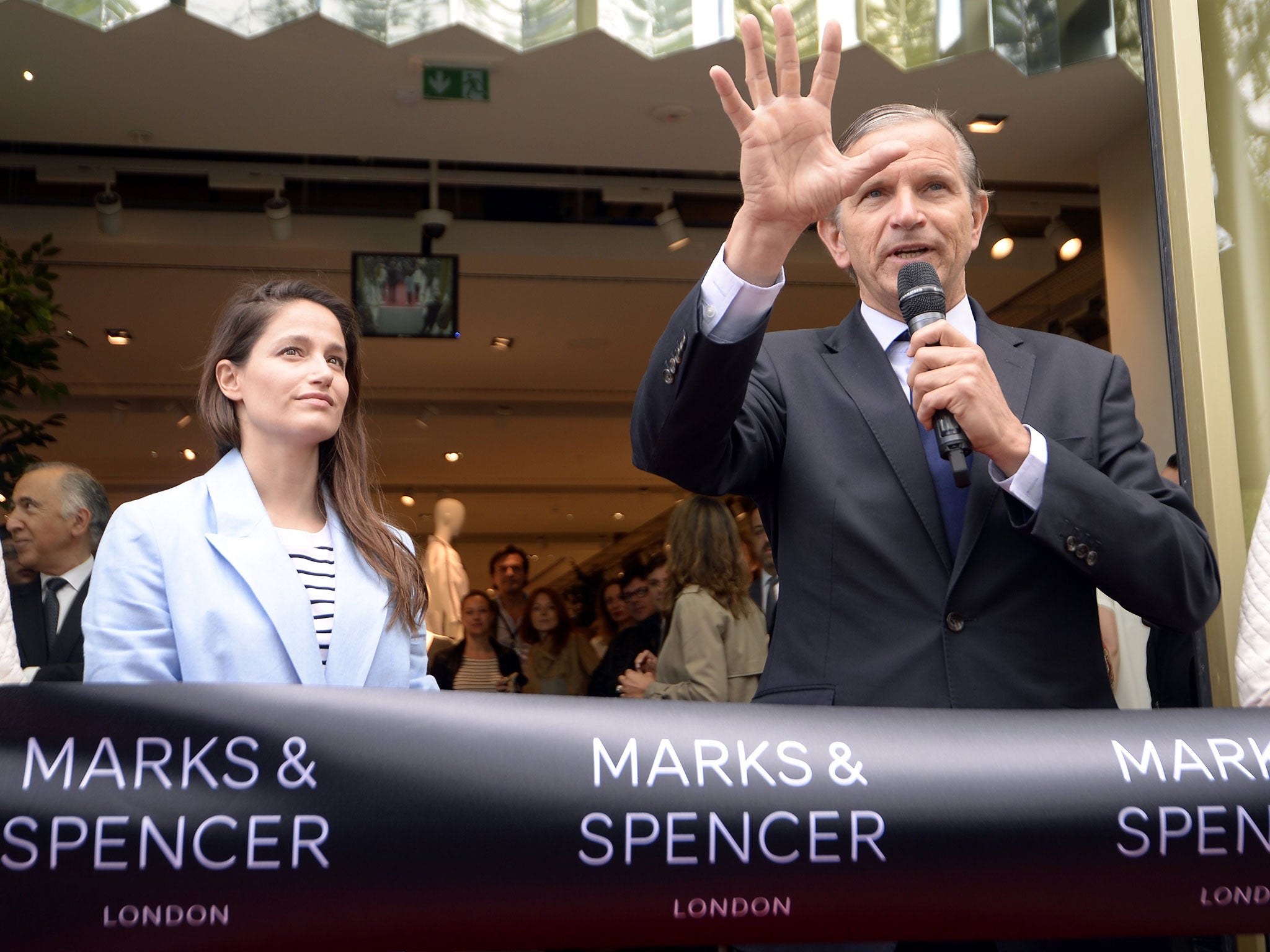Marks & Spencer's: Marc Bolland has kept the City happy. Customers may be another story
The departure of the non-food boss has thrown the spotlight once again on a chief executive whose survival is a mystery to other retailers. Simon Neville reports on a very private man and a company struggling to stay relevant

When it was revealed late on Thursday night that Marks & Spencer’s respected clothes and non-food boss John Dixon was leaving the retailer, the time-honoured tradition of predicting chief executive Marc Bolland’s departure cranked into life once again.
But perhaps the question that hasn’t been answered is how Mr Bolland has managed to stay at the top of one of the most intensely scrutinised retailers in the country for five years, and counting.
Admittedly, the intensely private, hard-working boss was left with a far tougher job – turning round a crumbling retail empire – than many have acknowledged. But while some in the City may toast an impressive rise in the share price – up 50 per cent since he started – many retailers are wondering how and why M&S is still relevant.
In the past four years there has only been one quarter of like-for-like growth in its clothing and non-food division. The company’s UK business has been overtaken by Next and John Lewis, and clothes sales have shrunk so much that M&S’s food arm is now bigger for the first time.
Rays of sunshine do include a shiny new website, better distribution networks and a food offer that knocks the spots off most competitors. But from a corporate perspective, the old-school approaches of this once-mighty empire still loom large.

Bosses have admitted that the corporate operation needs to be tighter, and insist progress has been made to turn the super tanker round, but it all takes time.
Staff in the glass-clad offices in Paddington Basin, next to Isambard Kingdom Brunel’s station, are quick to claim that M&S is a unique operation – unlike any other retailer.
Every aspect of the company is described in exceptional terms.
However, one retail source told The Independent: “The problem is, M&S is not unique. It is not the first to have a new website. It is not the first to have built a new warehouse. And it is not the first to have improved its distribution.
The sooner they stop thinking like that, the better.”
A typical example was the opening of M&S’s new “unique” distribution centre in Castle Donington, Leicestershire, where so-called “teething” problems quickly spiralled out of control.
One insider who worked on the project explained: “Management just wouldn’t listen. They were offered all sorts of solutions and pointed out all the weaknesses, but they decided they were right and it was only when it was too late that things had to be fixed.”
The sense of entitlement stretches all the way to the boardroom, including Mr Dixon, an M&S veteran who was one of a number of members who thought the top job should have been theirs.

And sitting at the top of this tree is Mr Bolland.
When the 56-year-old joined M&S fresh from being hailed the hero of the hour at Morrisons – where he took credit for saving Sir Ken Morrison’s skin during the dark days of its Safeway takeover – he had to fill the shoes of arguably one of the most charismatic retail bosses of the modern era, Sir Stuart Rose.
But instead of another charmer, M&S got a private man, described as incredibly thin-skinned and prone to taking any criticism with great personal affront.
In the early years of his reign he once tried to get a journalist at the Financial Times sacked by appealing direct to the newspaper’s editor. He even encouraged Justin King at Sainsbury’s to make a similar complaint.
At other times he has refused to shake journalists’ hands, while the image-conscious boss also refuses all television interviews.
Little is known about his personal life, and those who have worked with him reveal that simple questions like “how was your weekend” can be met with blank stares.
One executive who worked with him told The Independent: “Put it this way. I never met anyone who actually knew Marc. We never knew what he got up to in his spare time or what his hobbies were.”
However, the other side of Mr Bolland is someone who is charitable and caring – one genuinely interested in the welfare of his employees. Along with a number of other FTSE businesses, he helped start the “Movement to Work” initiative, designed to tackle youth unemployment, and during his time off when moving from Morrisons to M&S, he went to Italy to offer his services to charity.
He is also vice-president of Unicef UK, the Prince’s National Ambassador for Business in the Community, co-sponsor of the Consumer Goods Forum’s work on sustainability, and a supporter of the Fashion Retail Academy.
The same executive added: “He did seem to really care - – and whatever else you can say, he is a world-class marketeer.”
Many of his supporters point out that he has established the foundation needed to stop M&S slipping into obscurity, and that what he lacks in personality is made up for in drive and commitment to the bigger picture.
But others point out that, especially with a pay package last year of £4.5m, a chief executive must also be the face of the business, coherently explaining why customers should give it (and the chief executive) another chance.
Yet if there is one thing above all else that has kept him going for as long as he has, nearly everyone is in agreement – the share price has performed fabulously since he started.
One analyst explained: “The issue here is this. Marc might be the laughing stock of the industry, where retailers constantly ask ‘why hasn’t he gone?’ But at the end of the day, the share price will always win the argument.
“The problem is, does M&S want to keep the City happy or keep its ever-dwindling customers happy? Because at the moment, it is doing one very well and another very badly.”
Join our commenting forum
Join thought-provoking conversations, follow other Independent readers and see their replies
Comments
Bookmark popover
Removed from bookmarks